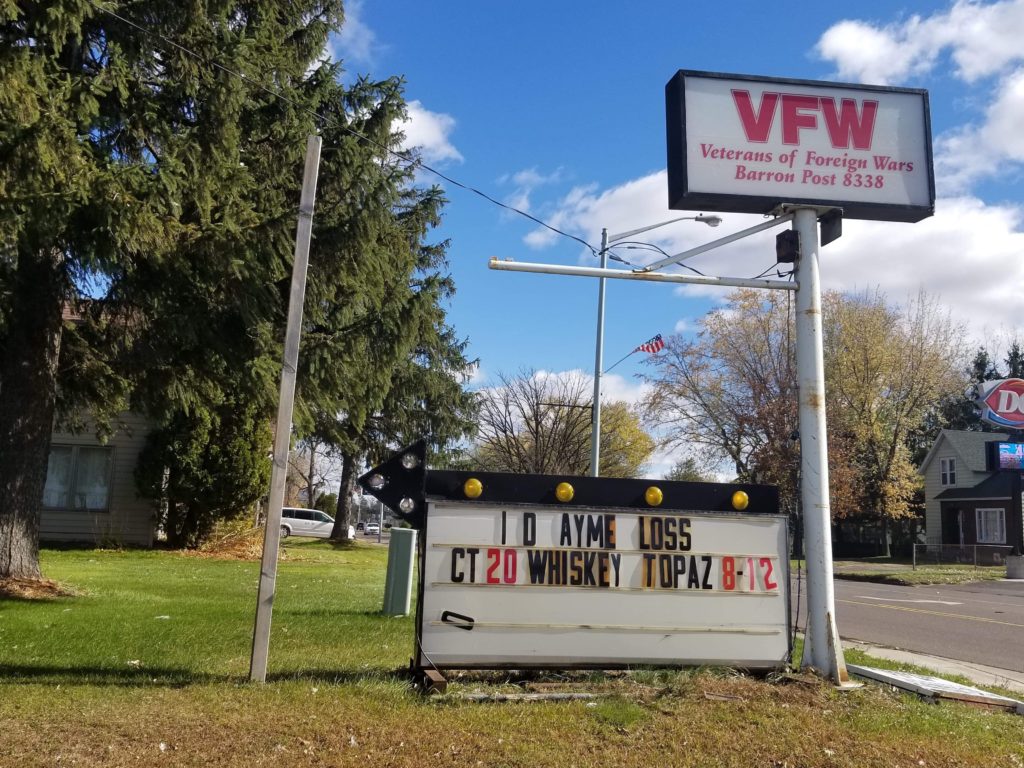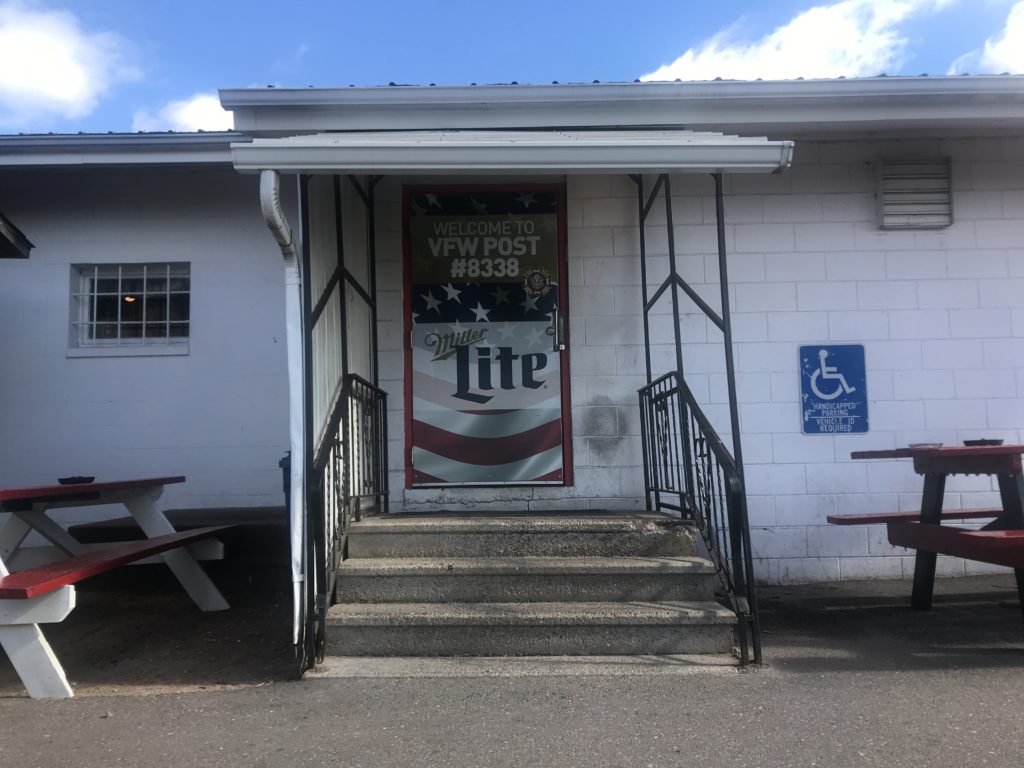“We didn’t want them here, but they came and we take care of them,” said Elaine Johnson of Barron, Wis. as she sipped her Diet Coke through a straw at the town’s Veteran’s Foreign War bar.

Johnson was an older woman, with chunky silver rings adorning each of her fingers, and she was talking about the Somali immigrants in her town, a town that was once almost completely white.
It was a Friday afternoon in October when Elaine made one of her daily visits it seemed to the bar. It was clear she was a regular, because each person who trickled in throughout the afternoon said the same thing:
“You got your husband’s truck today, huh?”
She told them hers was in the shop.
There were only five to six people in the bar, including the bartender, but that was enough to understand the kind of town Barron is.

As it was proven from Elaine driving her husband’s truck, everyone knows everyone. They know what kind of car her and her husband drive, and they knew they would find her sitting at the corner stool at the VFW, closest to the door.
But the people they don’t know are the ones who share a separate part of their town with them, “Somali-ville,”as Johnson called it. She said that’s what they call the apartment complex where a lot of the Somali people live.
For Johnson, who grew up in the Midwest her entire life, this influx of people in her town may be the only exposure she’s had to a culture outside of a small rural Wisconsin town. So, of course, she has a hard time understanding some of the things she sees a lot of the Somali people do that are different from what she’s used to.
One thing she took particular notice to is the way she perceives the Somali men treat women.
She said they don’t allow them to drive and specifically noted the women’s clothing as a form of repression. She said they are forced to cover themselves and she just didn’t understand it.
After talking with Somali women, the student journalists learned that the women can indeed drive.
Elaine didn’t know that.
What she also probably doesn’t know, is that Somali clothing, the flowing robes, or ‘jilbab,’ is actually a form of safety for the woman in Somalia. It’s part of their religion.
It’s likely that she doesn’t know much about the religion of the Somali people, or that it’s Muslim. She probably doesn’t know that men and women pray separately in the mosques, and the women have to go basement for this reason.
And, in the community tea room, women aren’t usually even allowed in, but none of this seems to offend them.
Elaine wasn’t trying to talk bad about the Somali people; in fact, she had nothing but positive things to say about their children, but a man who wished to remain anonymous was sitting two stools down from Elaine and realized how she might be making herself sound.
He chuckled a little bit at her comments in a way that said, “she has no idea that she’s making herself look bad right now,” but the feeling in the bar didn’t turn to tension when he offered a viewpoint on the Somali people separate to that of Elaine’s.
“They’re just like any population, really,” he said. “A lot of people don’t realize what they had to go through to come here.”
And he’s right.
Somalia has been in a civil war for over 20 years. The people who live in Barron now came there from refugee camps all across Africa in Kenya, South Africa, Uganda, etc.
But Johnson remained focused on their hygiene and the “odd” things she thinks they do like on days like that one, Fridays, when they fill the streets to go to the mosque and pray together.
She seemed to take what she sees as fact, without verifying her conclusions at the source.
She said she and her husband ate at the Somali restaurant once and that it was good, but aside from that, the only interaction she has with the Somalian people in her town is the one man who stops at the VFW to get drunk, and the kids who go to Barron Elementary with her grandchildren.
It seems odd that in a town of only 3,000 people there is a large population who seem to be, for the most part, unknown to each other.